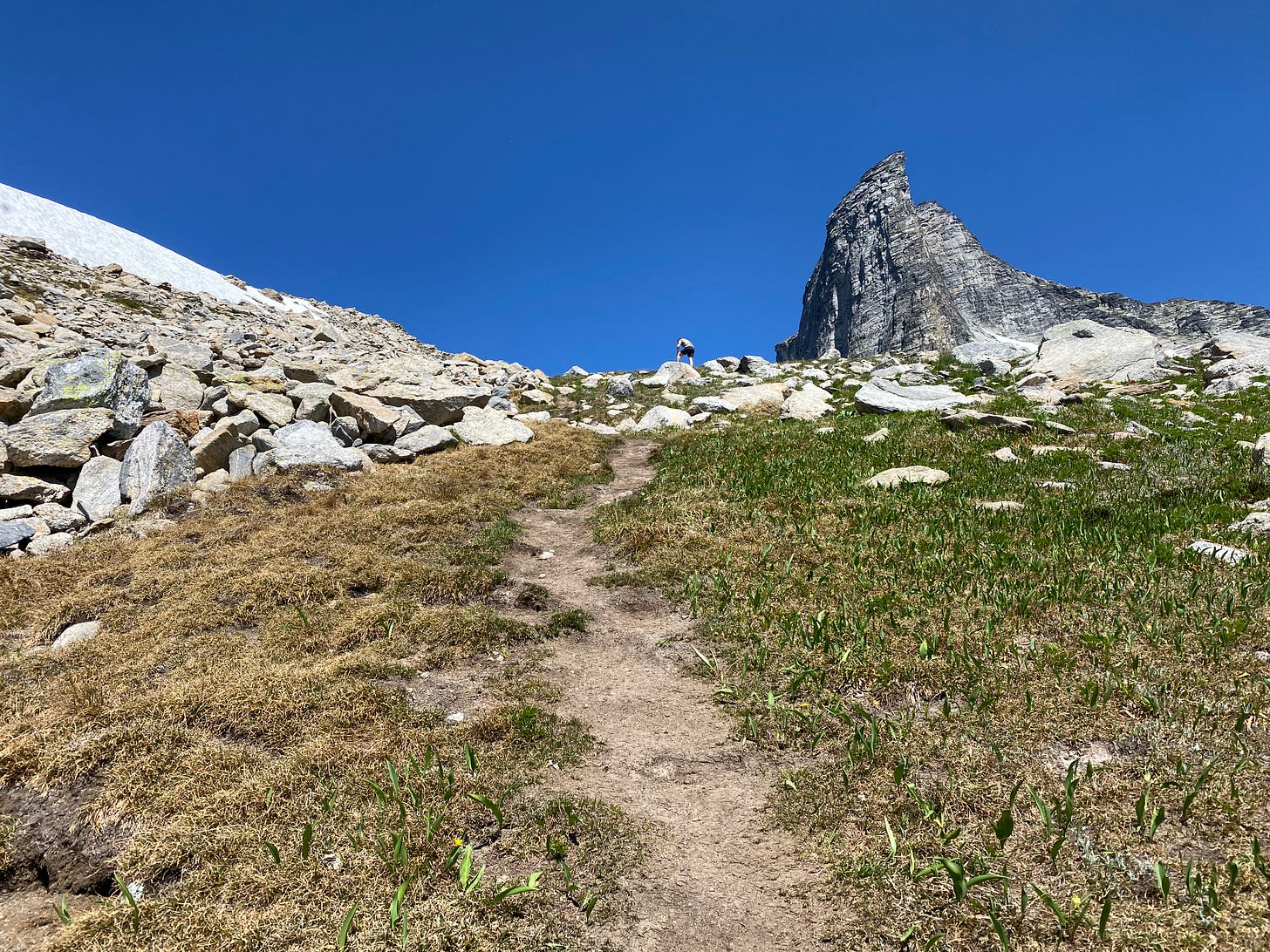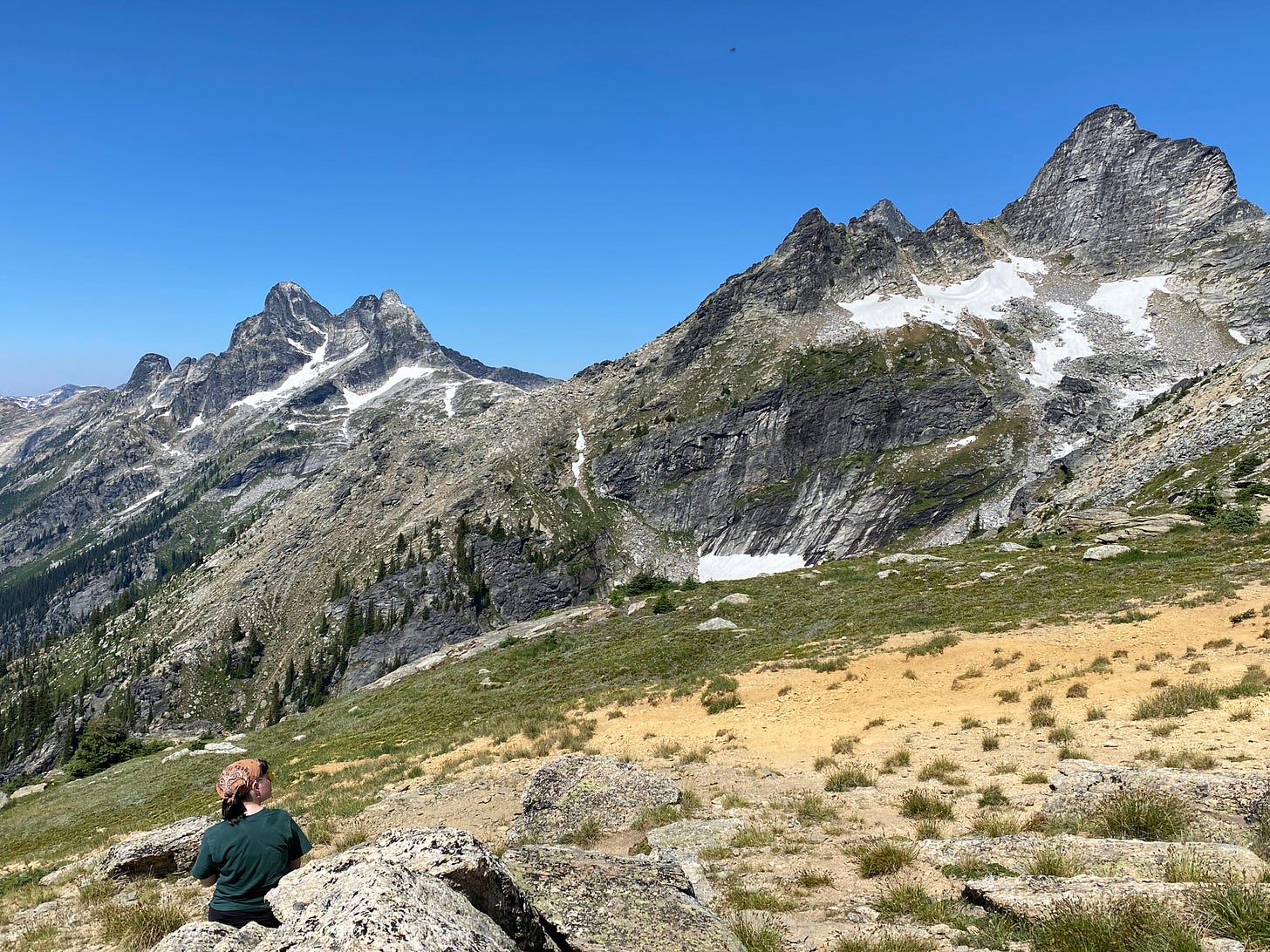When we hear the word compounding, most of us think about the effect of compound interest on money. Albert Einstein called compound interest the eighth wonder of the world, with good reason. Benjamin Franklin bequeathed money to the cities of Boston and Philadelphia, with the express purpose of allowing it to compound. He left 1000 pounds to each city, and 200 years after his death, it had grown to $6.5 million. The power of compounding when it comes to money is undeniable.
Here’s the mechanics behind the magic: when we deposit money into an interest bearing product, we receive interest at the end of the designated time period, let’s call it a year. Then, by leaving that money and the accumulated interest in the product for a subsequent year, we earn interest on the principal as well as the interest, so our interest amount increases year over year. It becomes a snowball rolling downhill, gaining momentum and growing exponentially.
In order to achieve this, there are two basic steps:
Put money into a financial product. Don’t take it out.
Let the interest gather. Don’t take it out.
In summary: overcome inertia, do the thing, have patience, don’t mess with it, watch it grow, and reap the rewards down the road.
We can extrapolate this simple principle to almost any area of our lives.
To really benefit from compounding, we need to build up two character traits: discipline and patience. It takes discipline to take action, and then patience to wait for the results. The passage of time is the key to the process.
Let me illustrate the importance of compounding as a life strategy with some scenarios.
1: We move to a new city and want to make new friends. It’s going to take discipline to go out and approach people, despite being nervous; and to keep trying, even when we get rejected. It’s going to require patience to wait for the right people to show up, and to continue making plans, trying to figure out if we’d like to pursue these connections. But then one day it clicks. We find the exact type of person we’re looking for, and they have a group of friends who we like as well. Suddenly, all that discipline and patience has paid off and the compounding worked its magic - we now have the circle of friends we’ve been looking for.
2: We get our foot in the door of the organization we want to work for, but it’s not exactly our dream job. It’s going to require discipline to get up every day and show up to work on time, with our best attitude, and work to our full capabilities even though we’re not really feeling it. We know that if we keep killing it every day, people will notice, and we’ll be at the top of their minds when advancement opportunities show up. And sure enough, our daily efforts compound, and pay off with a new role before long.
3: There’s a creative project we’re passionate about. It takes discipline to keep plugging away at it, even though some days we feel more inspired than others, and to overcome self-doubt when we wonder if it’s even any good. And it takes patience to wait for it to take shape. When we put it out into the world, it takes patience while we wait for others to recognize the quality of our work, and to persevere when our first, our third, our eighteenth attempt has not garnered attention. One day, the compounding effect will take hold, and our creative works will be noticed. If we focus on the process, and recognize the progress we continue to make through determination and stick-to-it-ive-ness, our efforts compound. Our skills have undoubtedly improved over the course of the creative journey.
4: Making healthy food choices compounds over time. If we eat whole foods like vegetables and fruit, and protein every day, we will see a difference in our health and body composition over time. If we do it once, that doesn’t have much of an impact. The importance of discipline and patience in achieving the compound effect is clear in both diet and exercise. One walk a week isn’t going to move the dial. But a daily walk, over time, will garner results.
5: Compounding is evident in our relationships with loved ones. If we regularly express appreciation, do small things for them, be affectionate, communicate our love, and make time to listen to them, then we will reap the rewards of our efforts.
6: When it comes to career growth, getting noticed and scoring a promotion doesn’t require spending more hours at the office than anyone else. It’s about the quality of our work, how we show up, whether we cooperate and encourage coworkers, the merit of our ideas, our follow-through, our ability to prioritize and manage time, our positive attitude - these are crucial determining factors. It’s not about the sheer quantity of hours spent chained to our desk. If we sacrifice our life to work, we will likely see reverse compounding in our health and relationships.
7: How we use our social media accounts compounds over time. If we focus solely on our appearance and acquisition of stuff, we should expect to attract superficial followers. If we spend our time online encouraging others, we will build a digital social credit, like karma. If we post a lot of woe is me, we might garner sympathy, but that will not help us move forward in life. If we display an upbeat attitude, people will come to see us in a positive light. Social media is like anything else, if we put thought into what we want to see compounding in our life, we can take steps toward achieving that. Online life is rife with pitfalls when it comes to reverse compounding. If we waste hours doom scrolling or comparing ourselves to others, and it detracts from things we would rather be paying attention to, then it might be time to set boundaries on our use of social media.
There are infinite examples of how our daily efforts compound over time.
If we brush our teeth regularly, that pays off when we visit the dentist. If we are friendly with our neighbours, they will be available when we need a hand. If we are consistently kind and gentle with our rescued pets, we will be rewarded with their love and loyalty. If we weed the garden for 10 minutes every evening after work, we will have a beautiful garden. If we hit the gym three mornings per week like clockwork, we will have sculpted abs (eventually). If we lock ourselves in a room Monday to Friday for three hours and pound out 2000 words every day, we will have a book to show for it in less than a year.
Any time we decide to pick up a new habit or quit an old one that no longer serves us, we are harnessing the power of compounding. We choose to build a new habit because it will be good for us, and that organically brings us a measure of happiness and freedom in our life. Choosing to quit smoking for example, requires patience and discipline, but when we’re successful, we are rewarded with better health and more money in our jeans - both of which compound over time. We have become free of a costly habit, and that increases our happiness.
Compounding works in reverse, too.
Our poor life choices add up just as effectively as our good life choices do. If we eat fast food every day, we feel the impact on our health over time. If we rack up our credit cards and fail to pay them off, the reverse compounding of interest can get real ugly, real fast. If we rarely floss our teeth, we shouldn’t be surprised when we get a cavity. Many of us go through life on auto-pilot without examining the results of our day-to-day choices. Not making a decision is still a choice. If we can’t decide on the ideal eating plan, and continue to eat poorly every day, we have made a choice.
A healthy connection to our future self is required to build a consistent practice. We need to be able to peer into the future and create an image of what we want for ourselves, or it will be challenging to apply discipline and patience. Visualizing what we want helps us solidify our intentions. If we see our future self cooking healthy food and living at our ideal weight, this will help connect us to today’s choices. If we see our future self relaxing on a beach in early retirement, it will help us to choose to save and invest money instead of spending our entire paycheque. We live in and enjoy the present moment and this practice takes nothing away from that. However, if we have a tenuous grasp on what we want for our future, then we fail to plan and act accordingly, and simply let life buffet us around.
There isn’t time in this life to master everything, so we have to decide how to spend our finite time and energy, and consciously choose our areas of focus. It might be building a house, practicing oil painting, volunteering with the elderly, climbing the corporate ladder, or learning to drive a bus. It doesn’t matter what it is, but applying the principle of Discipline + Patience = Compounding will lead to happiness and freedom.
We now see how compounding brings happiness. If we consistently work on and share our art, that makes us happy because we’re fulfilling our purpose. Or if we meditate every day, then in time, we’ll see the results in our life, which will lead to happiness. But, freedom? How are these practices equating to freedom?
Freedom is the ability to choose. It is liberation, autonomy, thinking and doing for yourself as you please, not having to answer to others. We are choosing the practices that are important to us. We don’t get to choose the outcome, mind you. But we decide where to pour our energy. It’s about the process, but how it is received is not up to us. Choosing to keep going and not giving up - that is 100% up to us.
We need to uncouple the outcome from the process. Focus on what we have control over and forget about the rest. I have control over choosing what to write, sitting down to write every day, completing and polishing projects, and publishing them. I have zero control over whether anyone reads them or how well they are received. I have no control over what people think or say about me or my skill as a writer. I need to ignore all that, or I could be crippled by self-doubt, which would shut down my creative process.
Compounding is achieved by doing the thing. Not by whether the thing is liked by anyone else.
The world would be much poorer if Vincent Van Gogh produced his art solely based on the reception it garnered. He needed to create because that was his purpose. Unfortunately, he didn’t become an acclaimed artist in his lifetime; but many decades later, he is a household name, his art is instantly recognizable, and it has inspired artists the world over. It’s a true case of discipline + patience = compounding. If he had lived long enough to see the rest of his story, there’s a better than average chance that he would have achieved happiness and freedom.
There are examples of compounding in action all around us. The bee gathers pollen, and makes honey, and he does it with discipline and patience and the effects certainly compound, not just for the bee, but for nature and humanity. He’s just being a bee and doing bee things. We need to be us and do our things too.
The bee gathers pollen because he needs to; I write because I need to. I write every day and I hope to find an audience for my work. But whether I do or not, the process is honing my skills as a writer, and growing my ability to trust that my output will mean something to someone one day. The process of writing is difficult, but I glean happiness from it. Being able to choose what I work on, and see it come to fruition, produces a feeling of freedom that has no comparison. My work has certainly compounded over the years, if the boxes of filled notebooks are any evidence.
There is no compounding without the passage of time. There is no get rich quick, no overnight success, no results without effort. There is consistently doing the thing, and then waiting. We must build up our patience muscles.
Ben Franklin understood that it would take a couple hundred years to turn a small sum into something astronomical. As he said, “Money makes money. And the money that money makes, makes money.”
As we examine our life, the truth comes clear: we are the result of our choices and actions, compounded over time. With the passage of time, we are able to look back and thank our past self, with astonished joy.







